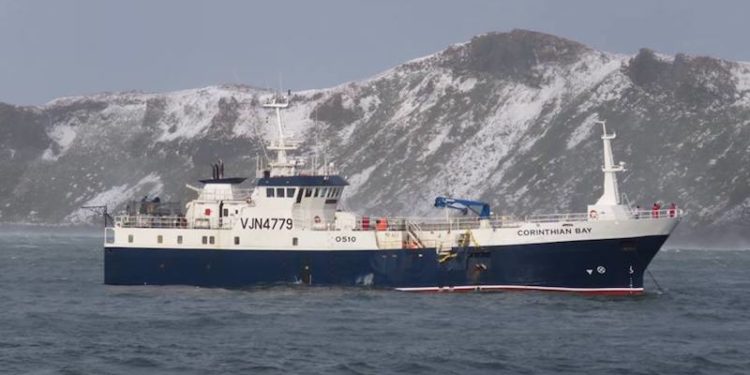BCG Digital Ventures and WWF Australia are launching OpenSC, a new digital platform that uses blockchain and other technologies to track food and products, and helps people and business to avoid illegal, environmentally-damaging or unethical products.
Australian fishing company Austral Fisheries have been chosen as the industry partner for this launch. The Perth-based company’s Glacier 51 Toothfish will be the centrepiece in displaying the platform’s ability.
The aim of OpenSC is to enable anyone to scan product QR codes with a smartphone camera, which automatically takes them to information about where a specific product came from, when and how it was produced, and how it journeyed along the supply chain.
OpenSC enables businesses to track their products, such as food and tissue paper, by attaching to products a digital tag (such as an RFID tag) at their original point of production and linking these to a blockchain platform. The blockchain, which cannot be tampered with, records the movement of the product and can also store additional information, such as the temperature of food in storage.
‘Through OpenSC, businesses and consumers will have a whole new level of transparency about whether the food we eat is contributing to environmental degradation or social injustice such as slavery,’ said WWF-Australia’s Dermot O’Gorman.
‘OpenSC is fantastic for businesses that are committed to sustainable and ethical operations,’ said Paul Hunyor, BCGDV’s managing director and co-chair of the World Economic Forum Council on the Future of Consumption.
OpenSC is being announced at an event at the top-tier Sydney restaurant Aria by Australian chef Matt Moran. He is cooking one of the first products to be tracked using OpenSC, Patagonian toothfish caught in sub-Antarctic waters by Austral Fisheries, and sent to thirteen countries around the world.
‘We have developed technology that can reliably pinpoint the exact location where each Austral Toothfish was caught and then use machine learning to demonstrate that it was caught legally in an MSC-certified sustainable fishery, and in particular that the fish was not caught inside an established marine protected area or in an environmentally sensitive area,’ said Paul Hunyor.
‘We see this as an opportunity for those doing the right thing to be able to showcase their products in a way that is transparent and verifiable, and what better product to showcase than toothfish,’ said Austral Fisheries CEO David Carter, excited about the possibilities that OpenSC offers for responsible operators.
OpenSC is available to all businesses that are looking to demonstrate that their products were produced in environmentally-friendly or ethical ways.
‘We’ve designed this technology to be highly compatible both with existing supply chain operations and certification systems, but also to interface with other blockchain enabled providence solutions. It is exciting that producers who are ready to provide transparency to their customers can be on OpenSC in a very short timeframe,’ Paul Hunyor said.
OpenSC has been launched following a pilot by WWF and its partners that used blockchain to track tuna caught in the Pacific.
‘We are launching one of the world’s first ‘profit with purpose’ start-ups that uses blockchain to help achieve the Sustainable Development Goals (SDGs). OpenSC does this by using cutting-edge technology to help stamp out unscrupulous operators who fish in illegal areas, bulldoze virgin forests, or engage in slave labour,’ Dermot O’Gorman said.









